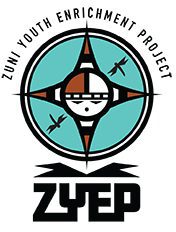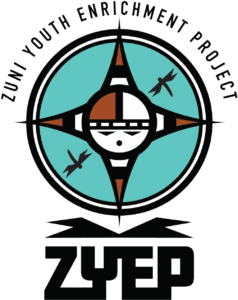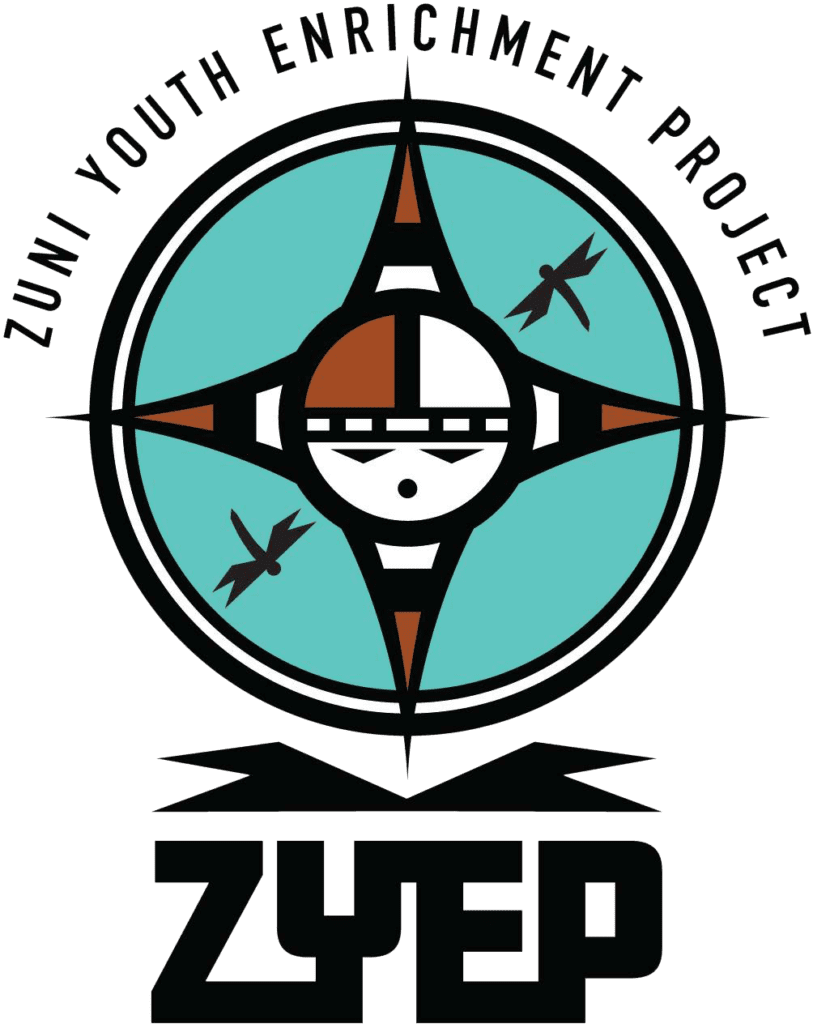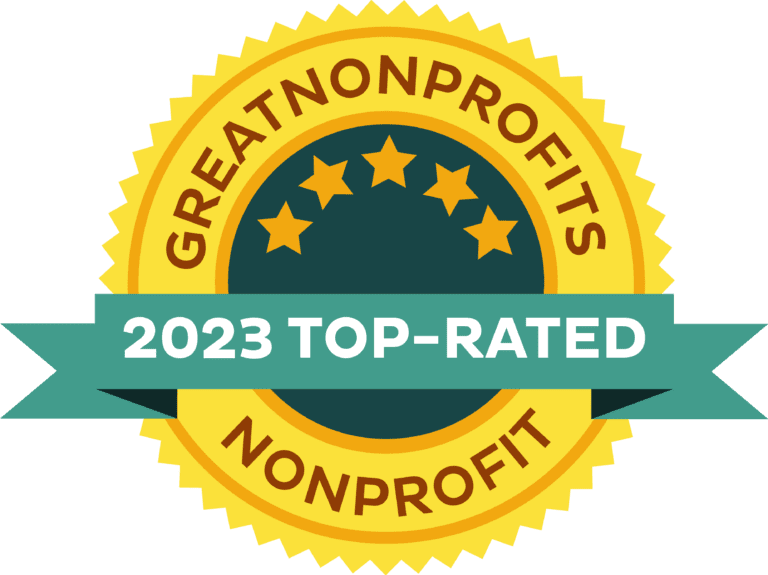ZUNI, NM (Feb. 15, 2022) — This winter, with support from the Outdoor Equity Fund and Substance Abuse and Mental Health Services Administration (SAMHSA), youth participants in the Zuni Youth Enrichment Project’s annual Delapna:we Project had the opportunity to visit Angel Fire and Taos Pueblo, New Mexico, for a family retreat. From Jan. 27 to 29, ZYEP staff and multiple generations from nine families enjoyed cultural education and experiences, shared Delapna:we (traditional storytelling) in the Zuni language, and supported each other through the fun and even an unexpected challenge.
On Friday, Jan. 27, the group gathered at ZYEP’s Ho’n A:wan Park to load Betty and Helga, the nonprofit organization’s passenger vans. Raylan Edaakie, a participant’s grandparent, led an opening prayer for safe travels and to start the trip with good intentions.
ZYEP Program Manager Tara Wolfe and Youth Development Coordinator Kiara “Kiki” Zunie drove Betty and Helga, accompanied by Art Leader Liam Simplicio and Youth Development Leader Norene Lonasee. Their first stop: the Indian Pueblo Cultural Center in Albuquerque, where the group had lunch and took a self-guided tour.
“We were excited to visit a portion of the museum dedicated to Delapna:we, as well as the Pivot Skateboard Deck Art Exhibit, which was curated by our assistant art coordinator, Kandis Quam,” Zunie said.
Quam and ZYEP Physical Activity Leader Tyler Sice had departed Zuni a day early so they could prepare the retreat cabin in Angel Fire for the group’s arrival. Zunie noted that this was important for the success of the retreat, and the duo continued to provide vital support throughout the weekend.
After the cultural center visit, the passenger vans made their way through Taos and up to Angel Fire. As evening approached, the weather deteriorated, bringing snow, strong winds and below-freezing temperatures.
When the vans reached the snow-filled driveway to the retreat cabin, they got stuck. Fortunately, the group used this challenging situation as an opportunity for bonding, using teamwork and relying on each other to solve the problem.
“We all came together at this moment to help one another get safely to the cabin where it was warm,” said Willard Sanchez, who accompanied his wife and two daughters. “It reminded me of the film ‘Lilo and Stitch,’ and I quote, ‘Ohana means family — no one gets left behind or forgotten.’”
The next morning, the group visited Harold Cordova’s Morningtalk Buffalo Ranch, where they were able to see the buffalo and learn more about the traditions of Taos Pueblo.
Curtis Quam, curator of the A:shiwi A:wan Museum and Heritage Center in Zuni and the cultural advisor for the trip, reminded the group in the Zuni language to take in the beautiful surroundings and acknowledge the resources that help sustain the culture. For example, admiring birds such as Clark’s nutcrackers, Steller’s jays and magpies helped the kids understand that those beings are important to Zuni people and how rare it is to see them.
“My dad taught me how to identify the birds we use when I was younger and how to be ethical and culturally sensitive to those important beings,” Quam said. “This part of enculturation could only be taught and understood in those areas with knowledgeable people.”
He also asked the group of youth to get creative in thinking about creating their own stories, or Delapna:we, using their surroundings.
At the ranch, Cordova shared the history of the buffalo. Everyone had the opportunity to see the buffalo as he drove a little farther into his property so he could feed them.
“When we drove to Taos to the Cordova residence and got up close to view the buffalo, (we enjoyed) such a humbling, blessing experience,” Sanchez said. “It was such an honor to see and hear how Mr. Cordova communicated with the buffalo. This experience will always be cherished.”
Families took pictures as Cordova sang a song to the buffalo, and his wife shared pueblo treats, including homemade pies and cookies. It was a valuable opportunity for retreat participants to connect to their cultural roots and build meaningful connections with a neighboring pueblo.
“This is what it is all about,” Cordova observed. “Connecting our people to their culture, and showing the young ones that they have a place here.”
Later that day, several families enjoyed sledding on the slopes near the retreat cabin. Other families baked bread to pair with delicious chuleya:we, a traditional stew made by Kandis Quam and Tyler Sice.
After dinner, families gathered around the campfire for popcorn, hot cocoa and Delapna:we. Lonasee shared traditional stories, and then youth participant Darren Lesarlley shared his own newly created Delapnanne (singular of Delapna:we) called “Si:wolo T’sana.” Fellow youth participant Mya Edaakie followed with her own story, and audience members closed their eyes to imagine the stories in their minds.
“After Delapna:we, Raylan Edaakie and our youth played a board game, similar to the Game of Life but ‘Zunified,’ using scenarios based on Zuni daily life,” Zunie said. “After much laughter and memories shared, the night ended with reminding one another of the importance of Delapna:we, recognizing that we are all here to support one another and to always lean on each other when times get challenging.”
“Remember that there is help… don’t give up,” Edaakie emphasized to the youth at the time. “It will be up to you to carry this tradition of our culture.”
Betty and Helga returned to Ho’n A:wan Park on Jan. 29 after a six-hour drive. Participants and staff alike reflected on the value of the experience, with Sanchez noting it “would not have been possible had it not been for the hard work and dedication of the staff and management of ZYEP.”
Wolfe said the trip was special for the ZYEP team as well.
“The opportunity to hear Delapna:we directly from the youth participants was heartwarming,” Wolfe said. “This is what we are here for, and this is why we are doing what we are doing.”
A particular highlight during the retreat: The Delapna:we Project youth were able to connect with the Wowo/Hotdas (grandmothers) and Nanas (grandfathers). They listened, learned and spoke in Shiwi’ma; they created new stories; and they were able to ask questions and reflect on what they observed and experienced.
“We will need to continue to build on the generational bridges to fill in the gaps,” Wolfe said. “This will be the key to sustaining our Zuni ways of life, our language and our culture.”
To learn more about the Zuni Youth Enrichment Project and its programs, and for information about making donations, partnering with ZYEP, and volunteering, call (505) 782-8000 or visit zyep.org. And, to stay up to date on the latest news and events, follow the nonprofit youth organization on Facebook (/zuniyouthenrichmentproject), Instagram (@zuniyouthenrichmentproject), YouTube (/ZuniYouth), and TikTok (/zyep09)
Founded in 2009, the nonprofit Zuni Youth Enrichment Project is dedicated to promoting resilience among Zuni youth so they will grow into strong, healthy adults who are connected with Zuni traditions. ZYEP fulfills its mission by providing positive role models, enriching programs, and nurturing spaces that contribute to the healthy development of Zuni youth. ZYEP strives to provide every child with the encouragement and opportunities they need to reach their full potential.





